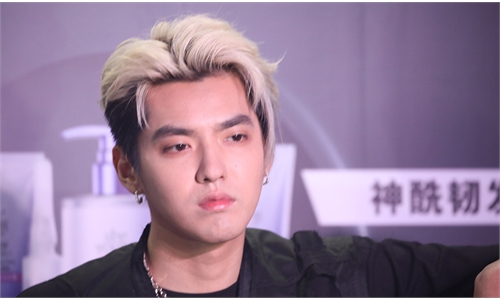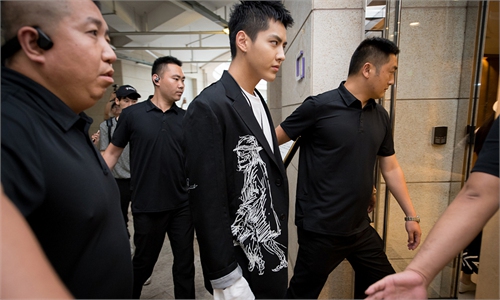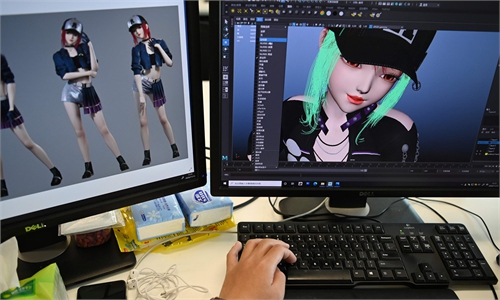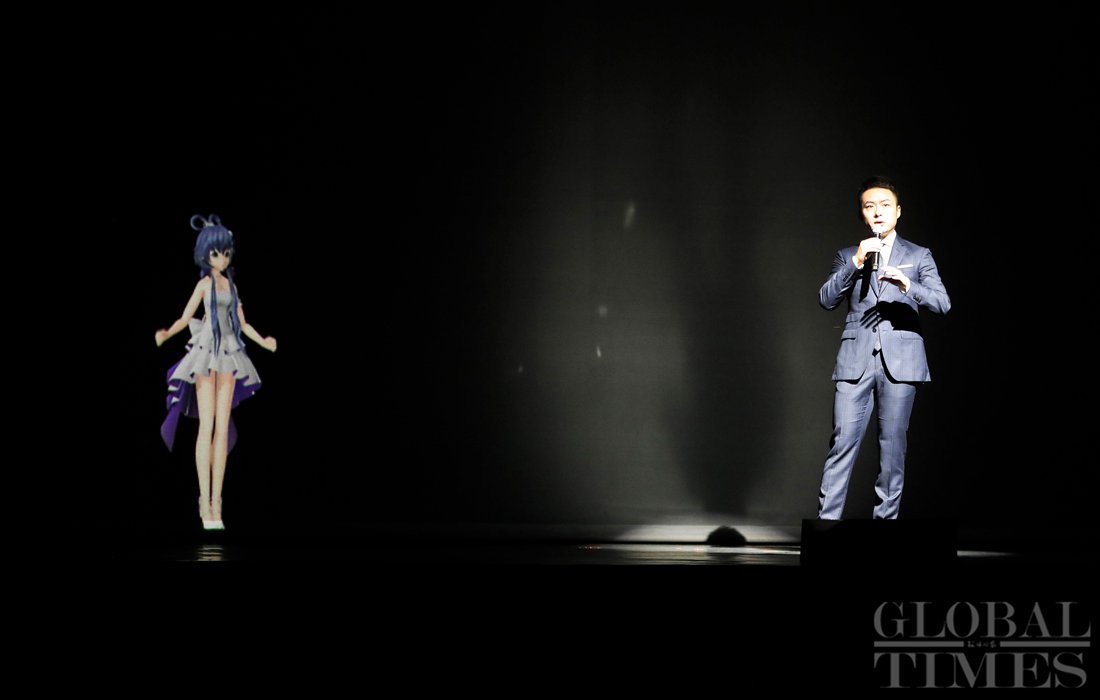
Luo Tianyi, one of the most popular Chinese virtual idols, developed by the Yamaha Corporation in collaboration with Shanghai HENIAN Information Technology Co Ltd, sang a song with a real singer. (Photo: Yang Hui/GT)
A recent series of celebrity scandals, with the latest involving Canadian star rapper Kris Wu Yifan, has triggered the awareness of more brands to manage risks, with many looking to the booming virtual idol sector to increase their digital assets, industry insiders told the Global Times.
Wu was detained by the police in Beijing on suspicion of rape after a police investigation of numerous online allegations that he had lured young women into having sexual relations, according to a statement from the public security bureau of Chaoyang district in Beijing late Saturday.
At least 10 brands, including luxury carmaker Porsche, French beauty brand Lancôme, German brand Tempo, food brand Master Kong and Tencent Video, has announced that they had cut cooperation with the pop star after these allegations.
"There are many uncontrollable factors involving human celebrities nowadays, like the high moral and legal risks. Also, some of the stars with huge online following want too much money for an endorsement," an industry investment manager, who asked to remain anonymous, told the Global Times on Sunday.
In comparison, virtual idols don't involve those issues, so they have naturally attracted more attention from brands, the manager said.
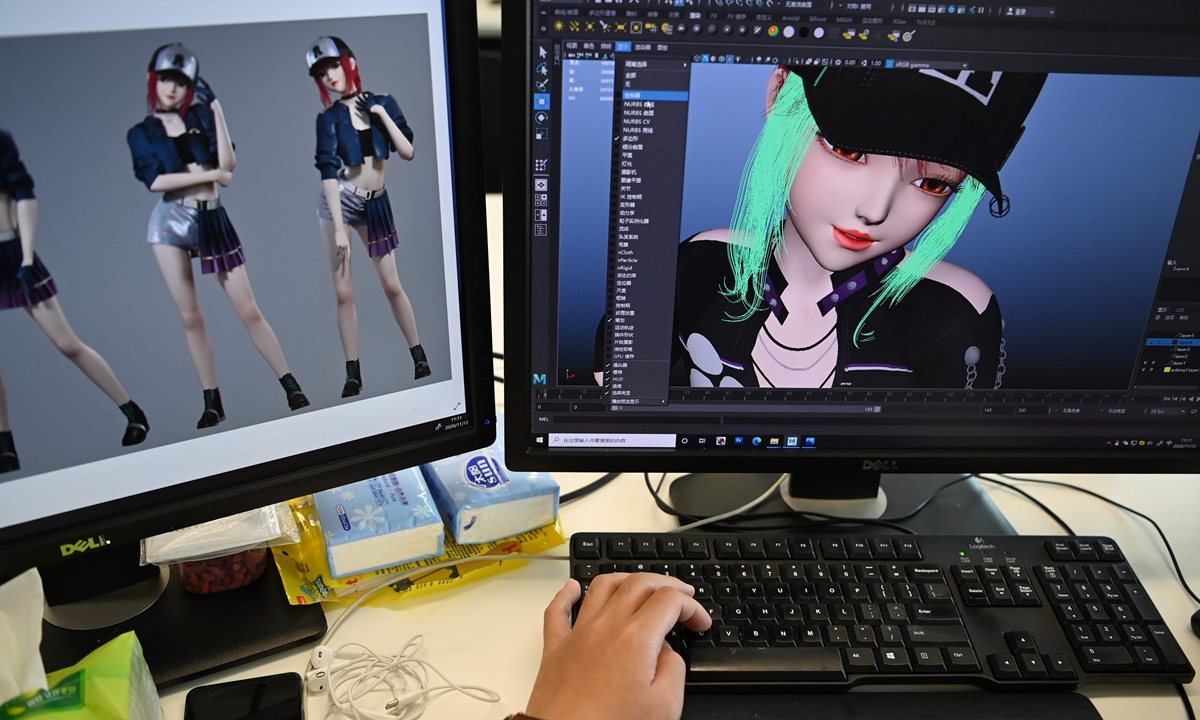
The image of a virtual idol "Liu Ge" is being designed. Photo: VCG
According to data from iiMedia Research, the size of China's virtual idol core industry in 2020 was 3.46 billion yuan ($540 million), an increase of 70.3 percent year-on-year, and it was expected to reach 6.22 billion yuan this year.
"I don't think the recent slew of celerity scandals could be our 'dividend' to promote the virtual idol industry. It's an unstoppable trend in the new digital world: the combination of reality and virtuality," said Chen Yan, founder of Beijing Next Generation Culture Media, the company behind Ling, a social media influencer whose realistic appearance is computer-generated.
Ling, with 120,000 followers on her Weibo account, has partnerships with brands including US electric-car producer Tesla, the world's first listed milk tea chain Nayuki and Chinese online fitness program provider Keep.
Chen told the Global Times on Sunday that demand from various brands for virtual images has surged since last year, when the COVID-19 pandemic brought more attention to digital assets.
"I have so far not met a brand that will say 'no' to a virtual idol," he said.
"Our next step is to expand more application scenarios for virtual idols," he added.

